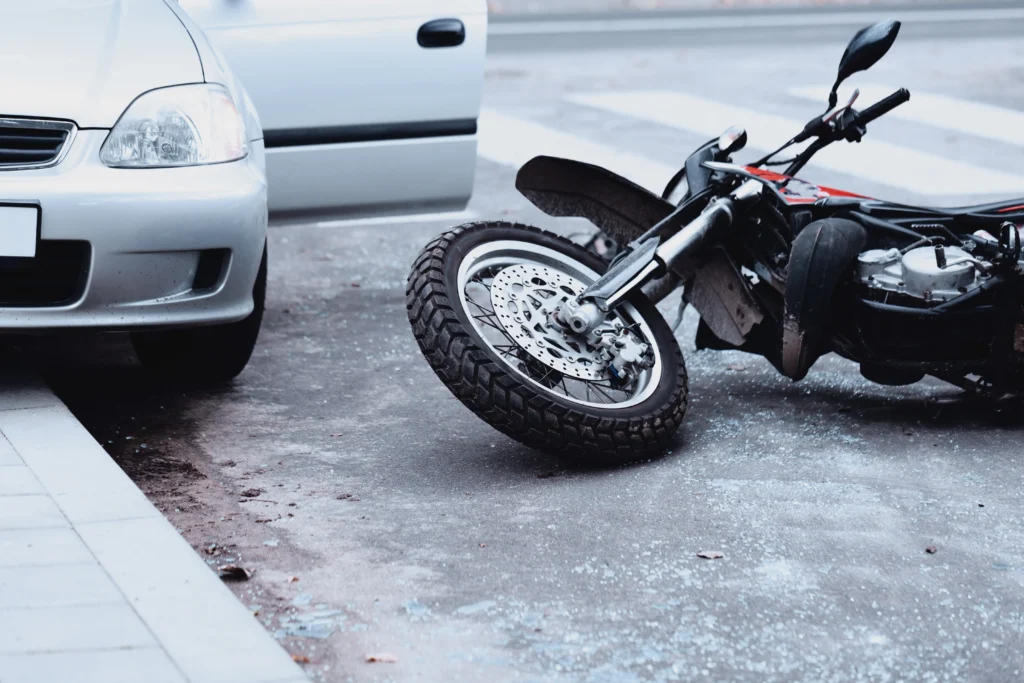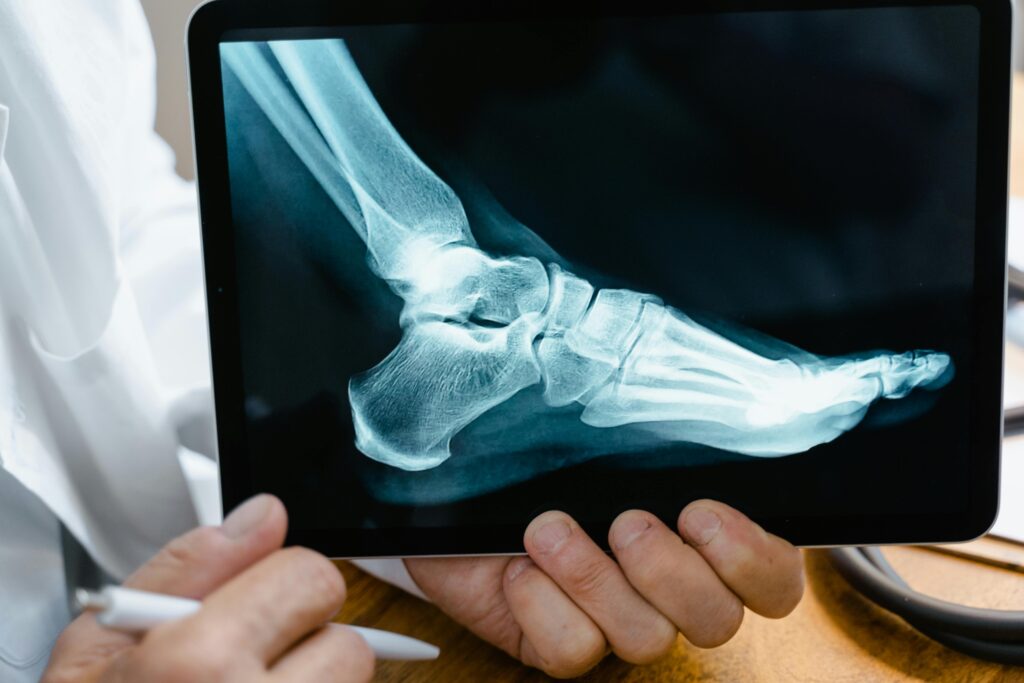Legal Advocacy for Colorado Brain Injury Motorcycle Victims
Motorcycle accidents in Colorado are not just crashes – they are sometimes life-altering events involving traumatic brain injuries (TBIs). From the long sweeping turns at Highway 285 departing Lakewood, to the congested lanes of I-25 through Denver, these roads create severe crashes which leave riders with cognitive and physical challenges for a long time. At Levine Law, we represent injured bikers who have experienced all of these life events. We have recovered millions of dollars and have helped hundreds of riders; our team is always ready to get to work on your behalf.
The Centers for Disease Control and Prevention (CDC) cites traumatic brain injury as a major cause of death and disability in the United States. These injuries often require long-term treatment and restrict a person’s cognitive or physical ability to work and enjoy life. When it comes to motorcycle accidents, riders are typically in an exposed position and unprotected, making brain trauma much more likely than a crash in another vehicle.
Motorcycles have no built-in safety features that create a physical barrier between the road, the motorcycle, and the rider. Even in the case of wearing a helmet, a crash on high-speed roads in Colorado like U.S. Route 36 between Boulder and Westminster requires the brain to be violently shaken on impact. This kind of blunt trauma frequently leads to concussions, contusions, or diffuse axonal injuries that may not be immediately apparent.
Levine Law aggressively pursues justice for clients who suffer traumatic brain injuries in Colorado motorcycle crashes. Whether your accident occurred in Aurora, Fort Collins, or on a rural road near Colorado Springs, we know how to build a strong claim rooted in evidence and guided by local traffic laws. Our deep understanding of Colorado’s legal landscape ensures that every claim is strategically developed from day one.
Why Colorado Brain Injury Motorcycle Crash Victims Need Aggressive Legal Action
A motorcycle crash involving a brain injury is not just another accident case. It is a life-altering event with permanent consequences. In Colorado, where riders face everything from unpredictable weather to high-speed urban traffic, the risks are extreme and the legal path is often complex. At Levine Law, we understand how to build a strong brain injury motorcycle case rooted in Colorado traffic laws, road conditions, and medical realities.
Motorcycle brain injuries typically involve long-term consequences such as loss of memory, impaired cognitive ability, and personality changes. These outcomes are often invisible at first but become increasingly disruptive over time. That is why early, decisive legal action is essential to recover the full scope of your losses and secure your future.
Building a Colorado Motorcycle Brain Injury Case That Holds Up in Court
Insurance companies do not accept high-dollar claims without a fight. If your case involves a traumatic brain injury from a motorcycle accident, they will question every detail. We build each case with a clear strategy and overwhelming evidence to eliminate doubt and show the real impact on your life.
We gather police reports, interview witnesses, and secure video footage from traffic cams or nearby businesses. Every detail supports your claim, especially when we overlay it with neurological evaluations and long-term care assessments from Colorado-based hospitals.
Securing and Preserving Key Evidence in Colorado Motorcycle Accidents
Timely evidence collection makes or breaks a motorcycle brain injury claim. In Colorado, changing weather and road maintenance can erase critical clues within days. Our team acts fast to photograph skid marks, gather black box data from nearby vehicles, and obtain 911 audio that documents what happened in real time.
We also reach out to witnesses quickly, preserving statements before memories fade. These firsthand accounts add weight to the physical evidence and are often the difference in tight liability disputes. We treat every crash scene, from Speer Boulevard in Denver to Mulberry Street in Fort Collins, as a potential courtroom exhibit.
Working With Colorado Medical Providers to Document Head Trauma
Proving a brain injury means more than just showing a hospital bill. It requires detailed, consistent medical documentation from the moment of impact through months or even years of recovery. We coordinate with trauma units across the state including UCHealth’s Neurology Department to get clear imaging, treatment timelines, and written medical opinions.
These records form the backbone of your legal claim. They show how the crash caused cognitive and neurological damage and how that damage limits your ability to work, socialize, and live independently.
Measuring Long-Term Losses From Traumatic Brain Injuries
A mild concussion may heal within weeks. But moderate to severe traumatic brain injuries often lead to long-term or permanent impairments. These may include personality shifts, decreased motor skills, chronic headaches, or difficulty processing language. These issues are not just physical; they affect your career, relationships, and ability to care for yourself.
We analyze these consequences and translate them into measurable legal damages. Compensation must reflect not just your past losses but the full cost of a changed life. According to the National Institute of Neurological Disorders and Stroke, individuals with moderate to severe TBIs often face years of medical intervention and therapy, which can cost hundreds of thousands of dollars.
Calculating Future Medical Costs and Life Adjustments
Motorcycle brain injury victims often require future treatments such as occupational therapy, speech rehabilitation, and in-home assistance. We bring in life care planners and economic analysts to project the true cost of your injury over a lifetime.
These calculations go far beyond immediate hospital bills. We factor in future surgeries, assistive equipment, home modifications, and therapy needed for physical and emotional recovery. Your case is not about just today’s costs but also tomorrow’s burdens.
Loss of Earning Potential After a Colorado Motorcycle Brain Injury
Many riders who suffer traumatic brain injuries are no longer able to return to their previous jobs. Some are forced into lower-paying roles while others cannot work at all. We use employment history, vocational assessments, and medical opinions to prove how your ability to earn has been permanently impacted.
Whether you are a construction worker from Greeley or a software engineer from Boulder, a brain injury changes everything. We quantify that loss and demand financial accountability from the at-fault party’s insurer.
Fighting Back Against Insurance Company Tactics in Brain Injury Claims
Insurance companies are quick to downplay brain injuries. They will argue that your symptoms are minor or pre-existing. They may even suggest you are exaggerating your condition. These strategies are designed to protect their profits and minimize your payout.
At Levine Law, we push back immediately and decisively. We do not accept excuses or delay. Instead, we present medical records, daily activity logs, and expert assessments that clearly link the injury to the crash and show the devastating impact on your quality of life.
TBI Denials Are Common in Colorado Motorcycle Cases
In many cases, insurance adjusters reject initial claims based on a lack of visible injury or incomplete documentation. Unfortunately, many victims give up or accept unfair settlements. We know how to confront these denials with evidence, timelines, and pressure.
The American Bar Association confirms that legal representation significantly increases success rates in denied claims. We use this leverage to negotiate aggressively or file suit when needed.
Leveraging Colorado Legal Standards to Your Advantage
Colorado follows a modified comparative negligence rule. This means your recovery can be reduced if you are found partially at fault. Insurance companies often use this to limit payouts. We counter that by reconstructing the crash and showing how the other driver was fully responsible.
Whether the crash occurred at a rural intersection outside Loveland or during rush hour on I-225, we understand how to apply the law in your favor and push for the highest possible recovery.
Let our team take the lead while you focus on healing. We are ready to demand justice for your motorcycle brain injury with the strength, speed, and precision your case deserves.
Traumatic Brain Injuries in Colorado Motorcycle Wrecks Are Often Life Changing
Motorcyclists face a far greater risk of brain injury than drivers of enclosed vehicles. In Colorado, where traffic flows rapidly through highways like I-70 and twisty canyon roads near Golden, riders experience intense force during collisions. Even a seemingly minor crash can result in serious brain trauma with symptoms that last a lifetime. Helmets help reduce the risk, but they cannot eliminate the possibility of severe cognitive damage.
The National Highway Traffic Safety Administration confirms that motorcyclists are over 25 times more likely to die in a crash than car occupants, and many survivors face long-term brain injuries. The lack of structural protection, such as a roof or side panels, makes the brain especially vulnerable to rapid motion and blunt force impacts. When another driver’s negligence causes a motorcycle crash, the resulting head injuries demand immediate medical care and aggressive legal representation.
Riders on Colorado Highways Often Suffer Severe Brain Injuries
Colorado roads expose motorcyclists to high-speed danger and unpredictable terrain. Riders injured on mountain roads near Evergreen or during traffic backups on I-25 through Denver often suffer secondary impacts after the initial crash. These impacts can cause the brain to strike the inside of the skull, leading to lasting damage.
During high-impact crashes, riders may hit pavement, guardrails, signage, or other vehicles. The resulting brain injuries often go undiagnosed in the early stages because symptoms can take hours or days to appear. Victims who delay treatment may later suffer memory loss, chronic headaches, or behavioral changes that disrupt their ability to work or live independently.
Concussions and Closed Head Injuries Often Go Undetected at First
Many riders walk away from an accident feeling dazed but otherwise uninjured. This false sense of security causes serious problems later. A closed head injury may not produce immediate bleeding or swelling, but over time, symptoms like confusion, blurred vision, or fatigue begin to show.
According to Johns Hopkins Medicine, delayed recognition of concussion symptoms contributes to complications and longer recovery times. That is why our team urges immediate evaluation after any motorcycle crash, even if you feel fine.
Repeated Head Impacts Make Recovery Longer and More Difficult
In some cases, a rider may have suffered prior concussions or head injuries before the most recent crash. Multiple traumatic brain injuries are known to increase the risk of long-term damage. Recovery becomes more complex, and symptoms often become more severe.
Motorcycle riders who experience recurring brain trauma may develop conditions like post-concussion syndrome or even chronic traumatic encephalopathy. These outcomes affect memory, speech, coordination, and emotional regulation. We fight to ensure that insurance carriers fully account for this progressive nature when valuing your claim.
Helmets Help but Do Not Guarantee Protection in Colorado Motorcycle Crashes
While helmet use in Colorado is only mandatory for riders under 18, many adults choose to wear helmets for safety. However, no helmet can fully absorb the force of a serious crash. Riders who suffer traumatic brain injuries often wore helmets at the time of the collision.
This is important because insurance companies often argue that a rider’s failure to wear a helmet contributed to the injury. But even in cases where a helmet was used correctly, victims still suffer cognitive damage. According to a study published in the Journal of Neurosurgery, helmets reduce the severity of brain injuries but cannot prevent them entirely, especially in high-speed collisions.
Road Conditions and Terrain Also Increase the Risk of Brain Injury
Colorado’s scenic highways and unpredictable weather increase the danger for riders. Rain, snow, and loose gravel can cause sudden loss of control. Roads through areas like Morrison, Vail, and the Western Slope frequently pose hazards that even skilled riders cannot avoid.
In these crashes, the rider is often ejected or forced to lay down the bike, resulting in direct contact with the road surface. These conditions make brain injuries not just possible but likely, regardless of riding ability or protective gear.
Vehicle Size and Impact Force Matter in Motorcycle Crashes
When a motorcycle collides with a larger vehicle such as an SUV or pickup truck, the force of impact is often absorbed entirely by the rider. These collisions commonly occur at intersections, on narrow highways, or when drivers make unsafe lane changes without checking blind spots.
We often see serious brain injuries from side impacts, rear-end collisions, and T-bone crashes where the rider is thrown off the bike. In these cases, we hold negligent drivers accountable for failing to yield or for distracted driving that put a vulnerable motorcyclist in harm’s way.
The risks of suffering a traumatic brain injury while riding in Colorado are high, especially when other motorists act carelessly. We work to uncover what went wrong, preserve the evidence, and demand accountability from the responsible parties. Your recovery starts with truth, action, and legal strength.
Insurance Companies Often Undervalue Colorado Brain Injury Motorcycle Claims
After a traumatic motorcycle crash in Colorado, many riders face an even tougher challenge than physical recovery. Insurance companies routinely downplay brain injuries, delay payments, and pressure victims into accepting low settlements. This behavior is not accidental. It is part of a calculated effort to reduce payouts in high-dollar claims, especially when the injuries involve the brain.
Levine Law fights aggressively to hold insurers accountable. We do not allow delay tactics or bad faith negotiations to interfere with your recovery. If your brain injury resulted from a motorcycle accident in Denver, Lakewood, or anywhere along the Front Range, we take swift legal action to protect your rights and demand full financial recovery.
Insurance Companies Minimize the Severity of Motorcycle Brain Injuries
Many insurers treat traumatic brain injuries as soft tissue claims with no lasting impact. This tactic allows them to offer low settlements based on initial ER reports or outdated diagnostic scans. They often ignore follow-up MRIs, long-term cognitive symptoms, and therapy needs unless forced to address them.
The Brain Injury Association of America explains that TBIs vary greatly in how they appear and progress. Mild symptoms at first can evolve into serious limitations. Insurers know this but often hope you will settle before the full scope becomes clear. Our team ensures that never happens by gathering all relevant documentation and pushing for accurate claim valuation from the start.
Adjusters Use Delay Tactics to Pressure Quick Settlements
When insurance companies stall, many injured riders feel financial pressure and become more likely to accept less than they deserve. Adjusters know that mounting medical bills, time away from work, and stress can wear down victims. They often use this to their advantage, making a lowball offer seem like the only way out.
We counter these tactics with immediate legal intervention. By filing formal demands, preserving medical documentation, and threatening litigation when needed, we stop these delays in their tracks. The longer they stall, the stronger our case becomes.
Insurers Often Blame Riders for Their Own Brain Injuries
Another common strategy is shifting blame to the motorcyclist. Insurance companies frequently argue that the rider was speeding, lane-splitting, or not wearing a helmet at the time of the crash. These claims are often exaggerated or completely unfounded.
Even when partial fault exists, Colorado’s comparative negligence law allows injured parties to recover damages if they are less than 50 percent at fault. We thoroughly investigate every accident to disprove baseless accusations and ensure you receive the maximum compensation allowed by law.
Proper Documentation Defeats Insurance Denials in TBI Claims
The key to overcoming insurance denials in Colorado brain injury motorcycle cases is detailed documentation. We collect everything from hospital records to personal journals that describe how your injury affects daily life. This creates a complete picture that insurers cannot ignore.
We also work with highly credible institutions like National Jewish Health for independent evaluations when needed. These medical insights help confirm your diagnosis, detail your prognosis, and validate the ongoing challenges you face.
Personal Records and Daily Logs Strengthen Your Case
Journaling symptoms, therapy visits, and emotional changes can be powerful evidence in a traumatic brain injury claim. Insurance adjusters may dismiss symptoms like fatigue or memory loss unless clearly documented. Your daily notes, along with testimony from family or coworkers, help prove that your injury affects more than just your health. It impacts every aspect of your life.
We help clients maintain strong records from the first consultation. This preparation positions your case for success and gives you the best possible leverage in negotiations.
Legal Action Forces Insurance Companies to Pay Full Value
Sometimes negotiations stall, and litigation becomes necessary. We file suit when insurers refuse to negotiate in good faith. Once in court, we present evidence of the injury, medical records, and testimony that paints a clear, detailed picture of your suffering and losses.
A report by RAND Corporation confirms that plaintiffs with legal representation tend to receive significantly higher settlements and judgments in personal injury cases. We use this leverage to your benefit, fighting for justice in every courtroom across Colorado.
Do not allow an insurance company to dictate the value of your recovery. Let our legal team take the lead, demand accountability, and ensure your motorcycle brain injury claim receives the full compensation it deserves.
Speak With a Colorado Brain Injury Motorcycle Attorney Today and Start Your Recovery
If you or someone you love suffered a brain injury in a motorcycle crash on a Colorado road, now is the time to take action. Waiting allows evidence to fade, memories to weaken, and insurance companies to gain the upper hand. At Levine Law, we move fast to protect your rights, document your injuries, and build a case that demands results.
From the foothills of Boulder to the busy streets of Colorado Springs, our team understands the unique risks motorcyclists face in every part of the state. We hold negligent drivers accountable and fight for full compensation that covers your medical needs, lost income, and long-term recovery. We never accept less than what your case is truly worth.
You pay nothing unless we win your case. Consultations are always free, confidential, and available in person or by phone.
Call 303-835-4910 now or visit www.carcrashlawyercolorado.com to speak with a Colorado brain injury motorcycle attorney today.
Your path to justice starts with one call. Let us help you take that first step.
Practice Areas
Trust Levine LawWith Your Personal Injury Claim
If you or a loved one have been injured, Levine Law will fight for you every step of the way. We will give our all to secure the compensation you rightfully deserve.
Contact usfor a free consultation.
Phone: (303) 951-4810






